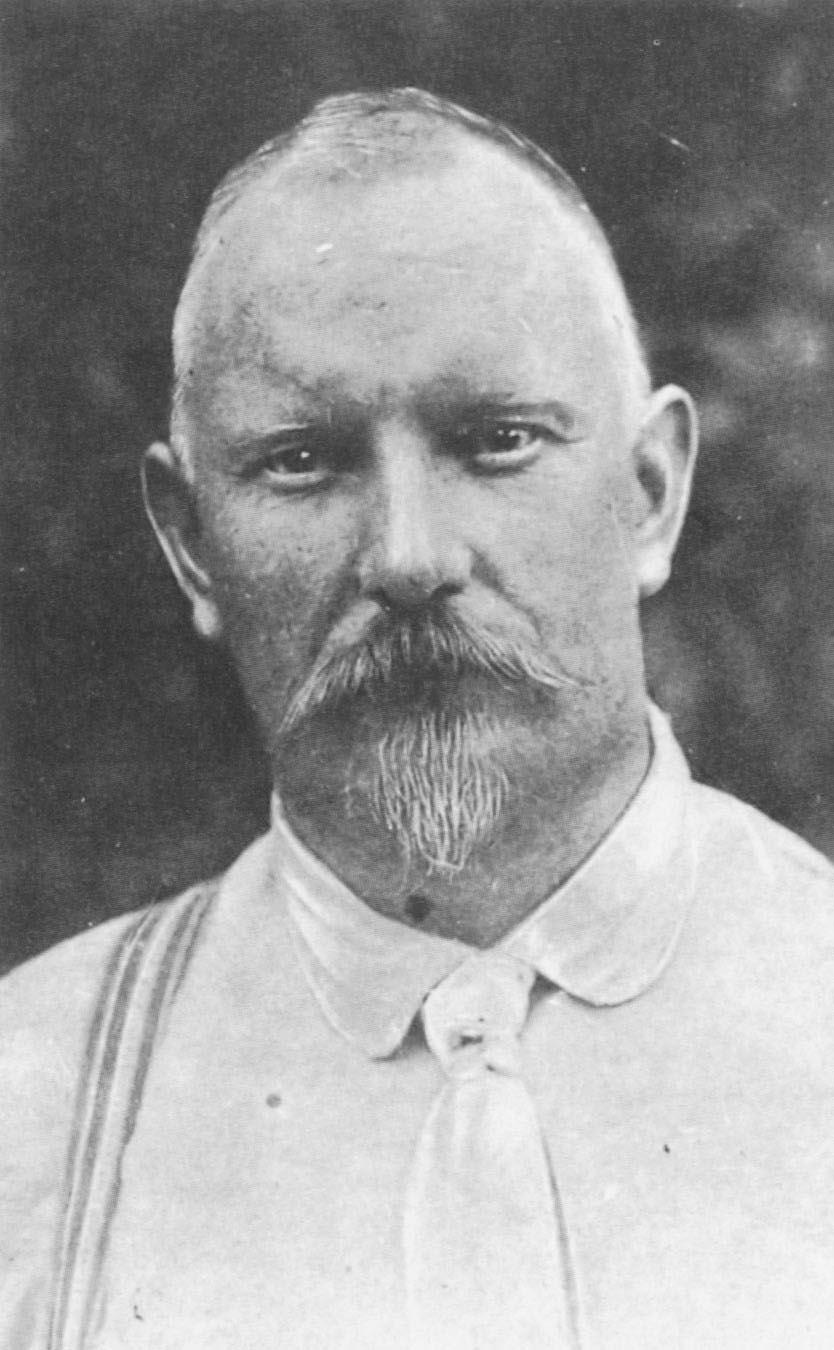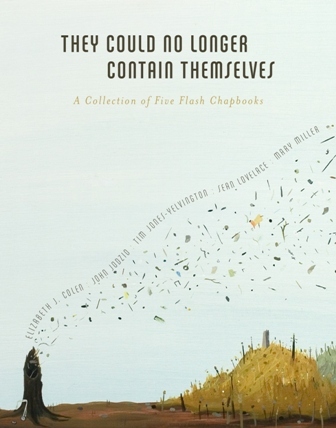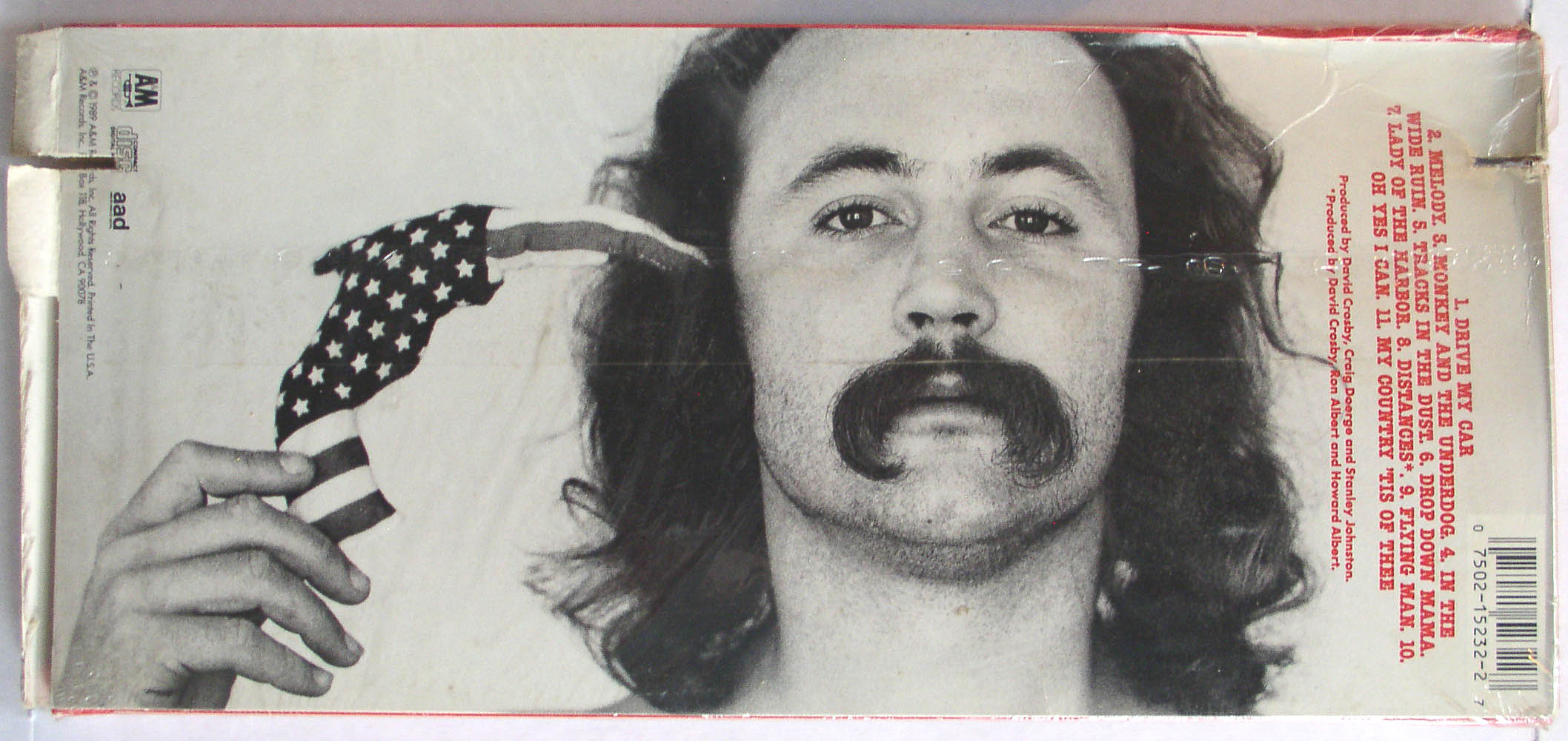The Alfinian Way: Nuclear War and the Thoughts of an Alien
With mounting international debate about Iran’s nuclear weapons capability and potential military action against them, I am reminded of an episode of the TV show Alf. Aired on October 13, 1986, “Pennsylvania 6-5000,” the series’ fourth episode, follows the furry, wisecracking alien as he tries to convince the President of the United States to abandon the country’s nuclear weapons program in order to save planet Earth from complete annihilation.
In the opening scene, Alf sits in the living room of the suburban house where he lives, talking to a radio show host on the phone. “I’ve got the solution to this nuclear bomb thing,” Alf says. “Get rid of ’em! They’re dangerous.” The studio audience laughs, but the message is clear: Alf’s right. Nuclear weapons are potentially self-destructive. The episode’s other lesson is equally apparent: the issue isn’t that simple.
L’invalide du post
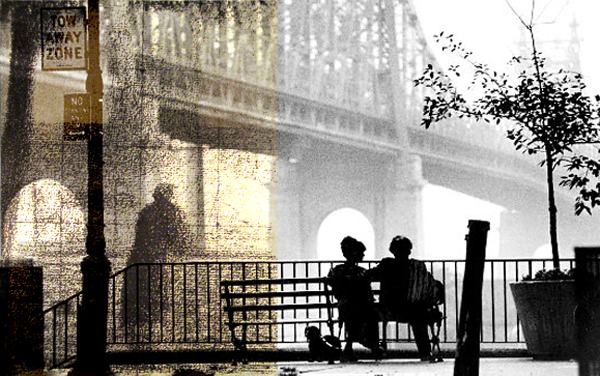
In Manhattan (1979), for about one minute, the characters played by Woody Allen and Diane Keaton sit in front of the Queensboro bridge at dawn after an all night date — both strenuous and romantic it seems, as I’ve never been, though I can imagine the slow light creeping onto someone’s lovely face as bakers and newspaper boys wake up, and cats return to porches with heads. Keaton concludes the scene by saying she has lunch with a friend. In a lesser first attempt, in front of the Brooklyn bridge in Annie Hall (1977), Woody tells Diane in response to if he loves her, “Love is too weak a word. I lurv you, I loave you, I luff you,” the middle sentiment which I always hear as “loathe” because I’m a Nietzsche kind of bro; I appreciate more “The most beautiful words in the English language are not I love you, but It’s benign,” which he says in Deconstructing Harry regarding a tumor. Much of Manhattan is drawn in silhouette, black shapes eclipsing grey backdrops as moons before a muted sun. Artists are always going to a city for the low and high rent and culture, respectively, until that get’s flipped, and they move. Never say “gentrification” at a dinner party, it’s dumb. Paris may in the past, but their bakers’ butter still wafts in the air. In Les Misérables (1862), Jean once passes an “l’invalide du pont” (the invalid of the bridge, here Pont d’Austerlitz), a disabled war veteran given a job collecting toll. Georges Seurat’s, L’invalide (Conté crayon on paper, c. 1881) does not have such a task, but merely gazes across the waters. Most known for his laborious pointillist paintings, I’ve always preferred his studies for them, the brief encounter with form from a meandering hand, as if only loosely attached to the eye. It’s so sad how both the artist and his subject’s aloneless are contingencies for their very collision. I will take anyone who jumps off a bridge seriously. I bet Diane has a salad with a French word in it. I bet Woody had some pills, imagining them as almonds for her salad. If only time could yellow a .jpeg the way it does a drawing. This post should be $2.50, but I’ll let you pass.
Mistletoe and Misanthropy Out On a Limb: Jeffrey Hecker’s Rumble Seat
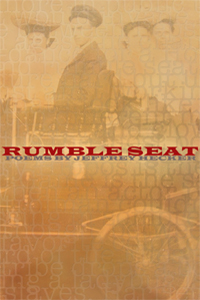 Rumble Seat
Rumble Seat
by Jeffrey Hecker
San Francisco Bay Press, 2011
78 pages / $14.99 Buy from Amazon or San Francisco Bay Press
“If I die during a crossword puzzle, I am allowed to finish.” So nearly concludes Rumble Seat, a Cretan-cum-Cracker Jack maze of delights presided over by the shade (elms over David Lynchian suburbia, not ghost) of Frank O’Hara. What happens when boy-next-door niceness merges with a rapier wit? You can’t ask David Foster Wallace anymore, but Jeffrey Hecker’s debut volume is a thoroughly selcouth exploration into the question. It’s a world where down-to-the-last-dime travelers can choose between “Basilica donation or acetaminophen, but largesse and simony lose by a Samson pubic strand”; where toothless soothsayers skulk around local churches, warning children that “dying during worship causes souls to suck through aperture.” We may be any number of places with Hecker: at a beef recall (as opposed to a southern-style pig pickin); with a transmogrified Sally Field with her “hair departed in buffalo tufts/intentions and glands in the wrong places/pituitaries topped off by kidneys”, bloodshot eyes leading the children of lost Roanoke colonists astray…but mostly at home, where strangeness, like charity, begins.
READ MORE >
January 9th, 2012 / 12:00 pm
Sunday Service: Erev Hallows Eve
The Olden Days
Spirits make THE THUMP.
Have you ever felt THE SHAKE.
Walking backwards on the Bridge of Names.
Even when I was not holding your hand.
Spooky boys laughing in the lake.
Have you ever been to the VERY BOTTOM?
Bad things happening in those woods.
I was not holding YOUR hand.
The dead face kills me again.
I am on the kitchen floor.
You are on the back road.
WAIT.
Where were we.
Running backwards on the shaking Bridge of Names.
–Lauren Ireland
What It Feels Like For a Girl
We are poco a poco, becoming witchy on a need-to-know basis. Our elders foist their little bottles of enzymes on us. Life experience naturopathy. In their presence, we do strange things: drink ginger and vinegar lemonade, lie down on the floor for past life regression. A few drops of oregano oil in a shot glass filled with water and, as with a dab of wasabi, come clear sinuses. Left alone again we find it’s a little too quiet and we forget the difference between good and bad bacteria. We get scared. Intend to meditate and stretch, to host a dinner party sometime soon.
–Krystal Languell
Lauren Ireland grew up in southern Maryland and coastal Virginia. She is the author of two chapbooks: Sorry It’s So Small, from Factory Hollow Press, and Olga & Fritz, from Mondo Bummer Press. She lives on Alabama Street in San Francisco.
Krystal Languell was a semi-finalist for the 2010 University of Akron Press Poetry Prize and a finalist for the 2011 National Poetry Series. Her first book, Call the Catastrophists, has just been published by BlazeVox Books.
“My mis-shapen head cracks through all the clichés.” – Jules Renard, on Writing
Years before Twitter and Robert Walser, Renard maximized the miniature. These are all from The Journal of Jules Renard, which Tin House reprinted in 2008, written between 1887 & 1910.
“You can recover from the writing malady only by falling mortally ill and dying.”
Things I’ve Read Lately
I’ve read some interesting books and magazines over the past couple weeks so I’m going to talk about them in one big post. Also, I’m giving several books away.
They Could No Longer Contain Themselves
I don’t care for the term flash fiction. I understand the etymology but I often think, “Why not call it a story?” There are so many terms now for different kinds of fiction. There is an obsession with naming, creating taxonomies so we can better understand the nature of a thing. Flash fiction. Very short stories. Sudden fiction. Microfiction. Nanofiction. All these terms strive to categorize the nature of stories that fous on brevity and compression. Ask five different writers how to define flash fiction and you will likely hear five different definitions. I read an article in the most recent issue of The New Yorker about tiny houses, and the writer talks about the article’s main subject, this guy named Shafer who designs tiny houses and the writer says, “What makes Shafer’s houses different from others is the classical elements of form and proportion and the graceful compression of his design.” I kept thinking about that line as I thought about the stories in They Could No Longer Contain Themselves. They each contain the classical elements of good fiction and the compression in each story is also graceful like a tiny house that holds everything you need to feel at home.
In They Could No Longer Contain Themselves, the latest book from the reliably excellent Rose Metal Press, five writers offer five unique interpretations of flash fiction in chapbooks by Mary Miller, Elizabeth J. Colen, John Jodzio, Tim Jones-Yelvington, and Sean Lovelace (I reviewed his chapbook in 2009, here).
July 25th, 2011 / 5:36 pm
I was the one who was called to make it: an interview with Luca Dipierro

Luca makes films, makes paintings, makes stories. He recently moved from New York to North Carolina, where he has become a visual artist full time. We talk about this recent decision, the relationship of art & commerce, art as work, and what is beautiful/not pure.
KB: So, what I’m immediately curious about is your thought process before you moved to North Carolina and decided to make art your primary business. Was there a definite moment in which you decided this?
May 26th, 2010 / 9:00 am
Night of the Week of The Lifted Brow, Part 2

"The Hand of the Desert" by Michelle Blade
Today’s selection from The Lifted Brow #6 is a collaborative short story by Deb Olin Unferth and Clancy Martin. Seriously, what else could you possibly need me to say to you about that? (Except maybe to remind you again that Deb is reading tomorrow night at Broadway East, with me and Tao Lin and several other fine folks, to celebrate the Rumpus 1 Year Anniversary.) Okay, “Nicaragua” begins below.
January 20th, 2010 / 10:34 am

